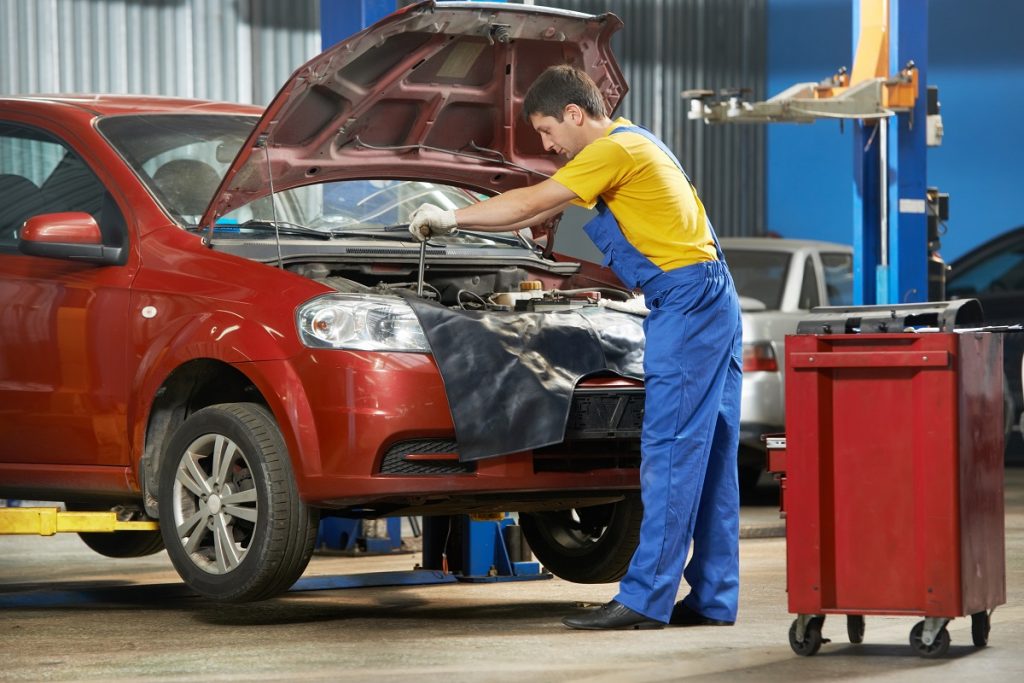If we look at the current trend in car usage, we will notice that it’s steadily growing. According to research, by 2045 the number of cars is anticipated to have nearly doubled. And this is the reason why starting an auto repair company is a successful business that will not fail in the near future.
Many competent auto mechanics aspire to start their own business at some time throughout their careers. Putting up an efficient and lucrative store, on the other hand, will need far more than mechanical abilities.
The car repairs business is a large and expensive operation that needs a variety of tools and a well-designed setup. A variety of repair equipment will be required in order to execute even the most basic repairs promptly and reliably for your clients.
Here is a complete guide of all the important car mechanic tools and equipment you will need:
- You’ll need an air compressor with a capacity of 4 to 5 cubic feet per minute (CFM) at 90 psi to run air equipment like an impact wrench. It’s also a good idea to choose a compressor with a tank capacity of at least 20 gallons.
- To sustain the car once it has been lifted, get a high-quality, high-capacity jack and robust jack stands. Axles and other components of elevated vehicles can also be supported by pole jacks.
- Oil changes and transmission fluid changes will necessitate an oil caddy with the capacity to hold the highest fluid amount expected.
- A battery charger or jumper connects to the dead battery’s terminals and draws power directly from the jump starter’s battery.
- You should get an engine hoist if you want to work on engines and need to be able to disassemble and repair them.
- To inspect the wheels for any trouble locations and to balance them by adding a weight on the opposite side of the problem spot, you will need a reliable car wheel balancer.
- When working as a mechanic, it’s important to remember that safety comes first. As a result, safety equipment like goggles, ear protection, fire extinguisher, and first aid kit will be required at your vehicle repair shop.
Apart from these, wheel chocks, vehicle lift, hydraulic press, brake lathe, and strut compressor are some important shop equipment you will need before starting your own auto repair business.

Checklist for Hand Tools
When working on vehicles, you’ll need the following hand equipment for literally any car job:
- If you’re like most individuals, you occasionally require assistance in breaking loose difficult nuts and bolts. By delivering more leverage, a breaker bar offers you that edge.
- To whack a vehicle part or two into submission you’ll need a conventional hammer as well as a dead-blow hammer for this job.
- There are many varieties of wrenches available nowadays. Your wrench set should include an impact wrench, oil filter wrench, torque wrench, chain wrench, pipe wrench, etc.
- When working on vehicles, punches and chisels come in handy for a variety of tasks. When you’re in the garage, it’s a good idea to have a range of shapes and sizes on hand.
- A screwdriver is an essential tool for every workshop’s entry-level mechanics. A magnetized screwdriver set is preferable. These drivers keep the screw in place and lower the chances of screws falling out.
- The most crucial item in your toolbox is undoubtedly a ratchet and socket set. Ratchets with each of the common drive sizes (1/4′′, 3/8′′, and 1/2′′), as well as different extensions and a full range of sockets should be included. Having a selection of Torx and Allen head sockets is also a good idea.
Besides these tire pressure gauges, a car pick set, extension bar, battery carrier, hood light, and a pry bar should also be included in this list.
Checklist for Diagnostic Equipment
Diagnostic tools can assist you in determining what is wrong with the vehicle. There are many diagnostic tools accessible, however, as a beginner, you should start with the following fundamental items:
- A mechanic’s stethoscope is an acoustic instrument used to listen to internal sounds. It is used by professional mechanics to figure out where the noise is coming from.
- Current (amps), voltage (volts), and resistance may all be measured using a basic digital multimeter (ohms). Having that skill comes in helpful when testing circuits and electronics of various types.
Depending on the services provided, a car repair business will require a large amount of equipment. In this post, we discussed several fundamental tools that you should definitely add to your arsenal.

